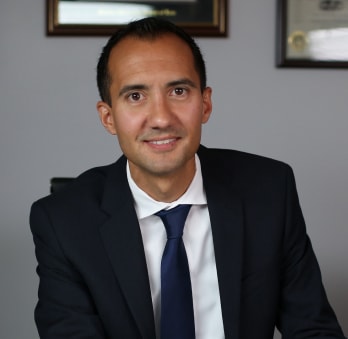
Disagreements or confrontations involving physical violence often lead to assault charges.
Depending on the extent of the injuries and who is involved, charges can range from misdemeanors to felonies.
In Minnesota, first-degree assault is a felony offense and carries serious, long-term consequences.
If you were arrested for first-degree assault, you should speak with a qualified Minnesota defense attorney.
Your attorney will help you understand your case and defend your interests in court.
What Is First Degree Assault?
Under Minnesota law, a first-degree assault typically occurs when a person assaults and causes great bodily harm to another person.
“Great bodily harm” means bodily injury that:
- Creates a high probability of death,
- Causes serious permanent disfigurement,
- Causes a permanent or protracted loss or impairment of the function of any bodily member or organ, or
- Causes other serious bodily harm.
A person may also face first-degree assault charges if he or she assaults one of the following people by using or attempting to use deadly force:
- A peace officer,
- A judge,
- A prosecuting attorney, or
- A correctional employee who works in a jail, private prison, or workhouse.
First-degree assault charges carry significant penalties, including hefty fines and prison terms.
Penalties and Charges for First Degree Assault
Under Minnesota law, a first-degree assault charge is a felony offense. First-degree assault penalties may include up to 20 years in prison, a $30,000 fine, or both.
If you are convicted of assaulting a peace officer, judge, prosecutor, or correctional employee, you must serve your entire sentence. This means you are not eligible for:
- Probation,
- Parole,
- Discharge,
- Work release, or
- Supervised release.
A felony conviction can affect you long after you serve your prison term and pay your fines.
First-degree felony assault charges may prevent you from:
- Getting a job,
- Obtaining housing, and
- Securing loans for education tuition assistance.
While first-degree assault charges are very serious, you may have some legal options available. Minnesota law has several defenses to first-degree assault. An experienced Minnesota criminal defense attorney can help you identify any available defenses and develop a strong legal strategy.
Defenses to First Degree Assault
Depending on the circumstances of your case, several different defenses may be available.
However, it may be challenging to prove your defense. A skilled criminal defense attorney has an in-depth knowledge of the law and understands how to develop and successfully raise a defense.
Self-Defense and Defense of Others
Self-defense is one of the most common defenses used in first-degree assault cases.
Self-defense may apply when:
- The alleged victim was the initial aggressor,
- You believed you faced an imminent threat of bodily harm,
- That belief was reasonable,
- You had no reasonable opportunity to retreat or escape, and
- You used only enough reasonable force to stop the attack.
Defense of others is similar to self-defense, except that it involves a person acting in defense of another person who faces a threat of unlawful harm or force.
Unlike some states, Minnesota does not have a “stand your ground” law. This means that a person facing a threat of great bodily harm must attempt to escape the situation if it is reasonable to do so. A person can use deadly force in self-defense only as a last resort.
Defense of Property
A person may also use reasonable force to defend his or her personal property.
However, this defense is available only in limited circumstances, such as when the property was stolen directly from your person. As with self-defense and defense of others, you may use only the amount of force reasonably necessary to defend your property.
Other Defenses
Other types of defenses to first-degree assault include:
- Consent,
- Necessity,
- Intoxication, and
- An alibi.
Some types of defenses are considered complete defenses. If successfully proven, the court will drop the charges against you. The court may also decide that a particular defense acts only as a partial defense to a charge. In these cases, the court may reduce or lower your sentence but not completely dismiss the charges against you.
Even partial defenses can significantly reduce your criminal penalties and help you return to your normal life faster after a conviction.
How Can a Lawyer Help?
Facing a first-degree assault charge alone can be intimidating. Even if you have a strong defense, successfully proving a defense in court can be complicated and time-consuming. Experienced Minnesota criminal defense attorneys understand the nuances of the criminal justice system.
The attorneys at Arechigo & Stokka, P.A., have a comprehensive understanding of the relevant laws and extensive experience defending clients against first-degree assault charges.
Our team of attorneys and staff can help you by:
- Thoroughly investigating your case,
- Collecting police and medical reports,
- Gathering witness statements,
- Filing documents in court,
- Negotiating agreements with the prosecutor, and
- If necessary, defending you at trial.
First-degree assault cases can be highly complex and require a thorough understanding of the law. It is critical to retain a qualified criminal defense lawyer to defend you.
Contact Our Offices Today
If you are facing first-degree assault charges, contact our office today. Our dedicated staff will answer your questions, research your case, and help you choose the best legal strategy. We understand how difficult this process can be, and we will help you every step of the way. Call our offices at 651-401-7926 or fill out an online form today.



